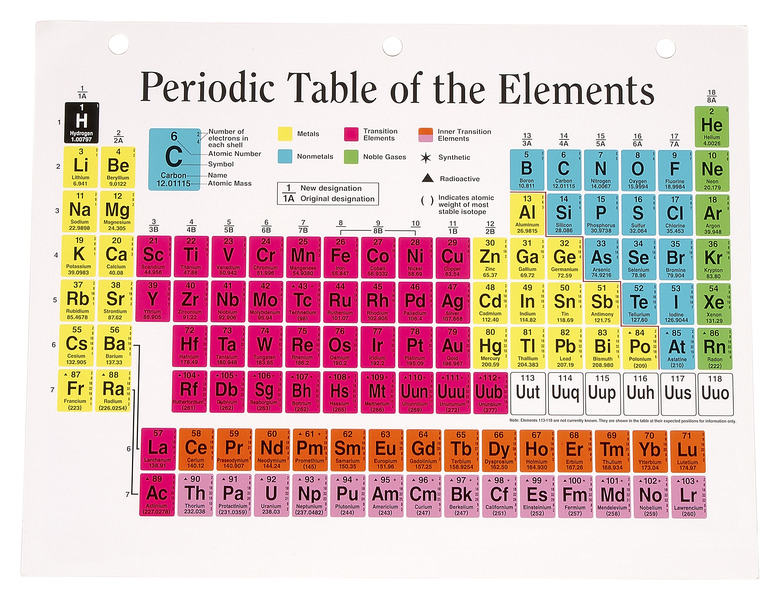Does The Nucleus Of An Atom Have Much Of An Effect On The Atom's Chemical Properties?
Although an atom's electrons participate directly in chemical reactions, the nucleus also plays a role; in essence, the protons "set the stage" for the atom, determining its properties as an element and creating positive electrical forces balanced by the negative electrons. Chemical reactions are electrical in nature; both positive and negative particles in an atom dictate how it forms molecules with other atoms.
Chemical Reactions
Chemical Reactions
Chemistry involves the electrons more than the nucleus; atoms gain, lose and share electrons with other atoms, forming molecules. For those elements with many electrons, only the outermost ones take part in chemical reactions; those closer to the nucleus are bound to the atom more tightly and are less able to move to other atoms. Although the nucleus affects an atom's chemical properties, chemical reactions do not change the nucleus in any way.
In The Nucleus
In The Nucleus
The nucleus of an atom is made up of protons and neutrons; protons have a positive electric charge whereas neutrons have none. Protons and neutrons have similar mass, with each having about 2,000 times the mass of an electron. The particles are held together by an attraction called the strong force, which is stronger than the electric repulsion that would otherwise cause the positively-charged protons to fly apart from each other.
Protons, Neutrons and Chemistry
Protons, Neutrons and Chemistry
In the nucleus, protons exert a positive electrical charge, attracting the negative charge of electrons and repelling the positive charges of the nuclei of nearby atoms. The tug-of-war between positive and negative forces is important in many aspects of chemistry, including the determination of melting and boiling points, the solubility of one substance by another, and the shapes of molecules. On the other hand, neutrons, having no charge, act as "silent partners" that do not affect chemical properties.
Ions
Ions
In a neutral atom, the number of protons and electrons are equal; the electric charges balance, giving the atom a net charge of zero. An ion, however, has either too few or too many electrons, shifting the balance positive or negative. A positive ion, for example, is missing one or more electrons; neighboring atoms "feel" the positive electric charge from the protons in its nucleus. Negative and positive ions attract each other strongly, forming ionic solids such as sodium chloride salt.
Cite This Article
MLA
Papiewski, John. "Does The Nucleus Of An Atom Have Much Of An Effect On The Atom's Chemical Properties?" sciencing.com, https://www.sciencing.com/nucleus-atom-much-effect-atoms-chemical-properties-22738/. 24 April 2017.
APA
Papiewski, John. (2017, April 24). Does The Nucleus Of An Atom Have Much Of An Effect On The Atom's Chemical Properties?. sciencing.com. Retrieved from https://www.sciencing.com/nucleus-atom-much-effect-atoms-chemical-properties-22738/
Chicago
Papiewski, John. Does The Nucleus Of An Atom Have Much Of An Effect On The Atom's Chemical Properties? last modified August 30, 2022. https://www.sciencing.com/nucleus-atom-much-effect-atoms-chemical-properties-22738/
